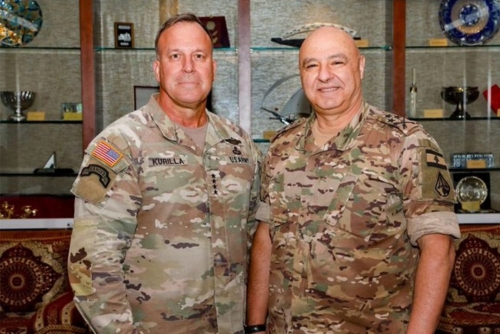Lebanon and US General Discuss Ceasefire Implementation Amid Regional Tensions
TDT | Manama
Email: mail@newsofbahrain.com
Lebanon’s President Joseph Aoun met on Monday with General Michael Kurilla, head of the United States Central Command, to discuss the implementation of a delicate ceasefire between Hezbollah and Israel in southern Lebanon, according to a statement from the presidency.
The discussions come as a January 26 deadline looms for the full enactment of the ceasefire terms, which were agreed upon in a November 27 accord. The truce requires the Lebanese army to deploy alongside UN peacekeepers in the south as the Israeli military withdraws. Concurrently, Hezbollah is obligated to retreat its forces north of the Litani River, approximately 30 kilometers (20 miles) from the Israeli border, and dismantle any remaining military infrastructure in the south.
The presidency reported that Aoun and Kurilla reviewed “the situation in the south and the stages of implementing the Israeli withdrawal.” A committee comprising delegates from Israel, Lebanon, France, and the United States, alongside UN representatives, has been established to monitor the agreement's progress.
Strengthening US-Lebanon Military Ties
In addition to the ceasefire, the talks addressed enhancing cooperation between the Lebanese and American armies. The United States has been a significant financial supporter of Lebanon’s armed forces, particularly since the country’s economic collapse in 2019, which severely weakened its institutions.
General Kurilla's visit follows the election of President Aoun, a former army chief, last Thursday. His election ended a more than two-year stalemate during which Lebanon’s presidency remained vacant, exacerbating the country’s political and economic crises.
Escalating Tensions and Regional Strikes
Despite the ceasefire agreement, tensions remain high. On Sunday, Israel conducted airstrikes in eastern and southern Lebanon, targeting Hezbollah positions, including smuggling routes near the Syrian border, according to Israeli military sources. Two days earlier, Israeli strikes in southern Lebanon killed five people, with the Israeli military claiming it had hit a Hezbollah weapons transport.
Related Posts

